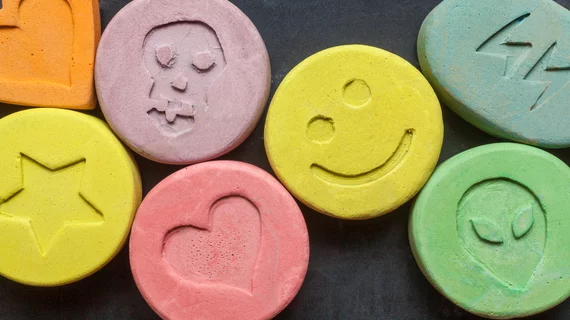FDA rejects ‘ecstasy’ as treatment for PTSD
After evaluating the efficacy and safety of using midomafetamine (MDMA)—also known as “ecstasy”—the U.S. Food and Drug Administration has rejected it as a treatment for post-traumatic stress disorder (PTSD).
According to a statement from drug manufacturer Lykos, the FDA requested an additional phase 3 clinical trial, ultimately denying a new drug application that would have approved the use of MDMA as a treatment for PTSD, when used in conjunction with psychotherapy.
However, Lykos can provide new data and resubmit its application in the future, which the company said it intends to do.
“Lykos plans to request a meeting with the FDA to ask for reconsideration of the decision and to further discuss the agency's recommendations for a resubmission seeking regulatory approval for MDMA capsules,” the company said.
In June, Lykos submitted an application to have MDMA reviewed as a treatment by an FDA advisory committee. The company said the FDA's rejection raised similar concerns to the findings of the committee. However, Lykos has expressed concerns the committee lacked the proper expertise to make their evaluation, adding that the “FDA itself has acknowledged potential problems with the Advisory Committee process and has opened a public docket seeking comments on how it can be improved.”
The studies submitted by Lykos were also subject to scrutiny from the Wall Street Journal, which cited three participants who had worsening symptoms during the course of the trials, including suicidal thoughts. Further, they said they were pressured to report positive outcomes.
In its statement, Lykos lamented the FDA rejection as a blow to patients with PTSD. The company said there has not been a new drug approved by the agency to treat the condition in over 20 years.
It said it will work with the FDA in the coming months to resolve any concerns before resubmitting its new drug application.

